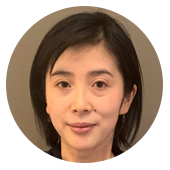The Amsterdam-based organization KidsRights awards the International Children's Peace Prize annually to a child who has fought for the rights of other children. Kawasaki Rena was chosen in 2022 from 175 candidates.
The award ceremony took place in The Hague last November. Clad in her mother's kimono, Kawasaki threw down the gauntlet to the world's most powerful people.
"I'm dedicating my life to changing governmental systems to reflect the diverse world we live in," she declared, "and to make sure nobody feels hopeless in our political system again. World leaders, it's your time to follow."

Kawasaki was 8 years old when she read a picture book about Japanese people who were sending used school bags to Afghanistan. She realized there were children elsewhere who couldn't access education because of conflict or poverty.
And she soon learned that Japan was far from perfect. After seeing that young people in her country had trouble expressing their views on social issues, she decided to act.

At 14, Kawasaki set up a local branch of Earth Guardians, an international NGO that brings together young people for climate action.
She also launched an online platform to connect schools and local politicians, allowing young people to express their concerns about issues such as education and the environment.
In 2021, Kawasaki created an online portal where young people in the city of Niihama in western Japan could sound off about local political issues. It was hailed as a resounding success. City officials say more than 800 people took part. Many of them said they were worried about climate change, and called for more action from their local leaders.

Kawasaki has taken it upon herself to reflect these views in a role she recently took up at a Japanese biofuel company. As the firm's Chief Future Officer, she helps develop a new orientation program for recruits.
Connecting the generations
You'd be forgiven for thinking Kawasaki has Japan's corporate and political seniors quaking their boots. But she doesn't frame her work as "young vs. old" or "us vs. them". In fact, she insists older generations are willing to listen.
"After talking to different politicians, different youth, different teachers, different adults that had different professions, I felt that they all had the best intentions and the only thing keeping them apart was effective communication.
"I felt that the biggest issue in Japan was having a place where both sides, adults and children, could be heard ... in all sorts of layers of society."
KidsRights founder Marc Dullaert says Kawasaki has made a "positive breakthrough" in Japanese society, where young people are largely excluded from the decision-making process.
"You see tangible impact," he says. "Things are happening. She inspires people. I think she's an extraordinary youth pioneer, giving the youth of Japan a voice. And I dare to call it historic."
Making a difference in Tokyo
Kawasaki is now working with the Tokyo government on a project to redevelop the Japanese capital's bay area and make the city more sustainable. Officials say the initiative could reap benefits for all of the 37 million people living in the greater Tokyo area.
And for Kawasaki, that means not only involving as many children as possible, but also keeping them much better informed about their futures.
"My goal is to create a long-term system within the Japanese government, (so that) youth can propose their ideas and can actually see the process in which that idea is going to be processed," she says.

Kawasaki says she tried to use her acceptance speech in the Hague to deliver a message of hope to her country. She says she also wants the world to know that despite appearing quiet and passive, young Japanese people have many important ideas, and it's only a matter of time before they become the country's next leaders.

